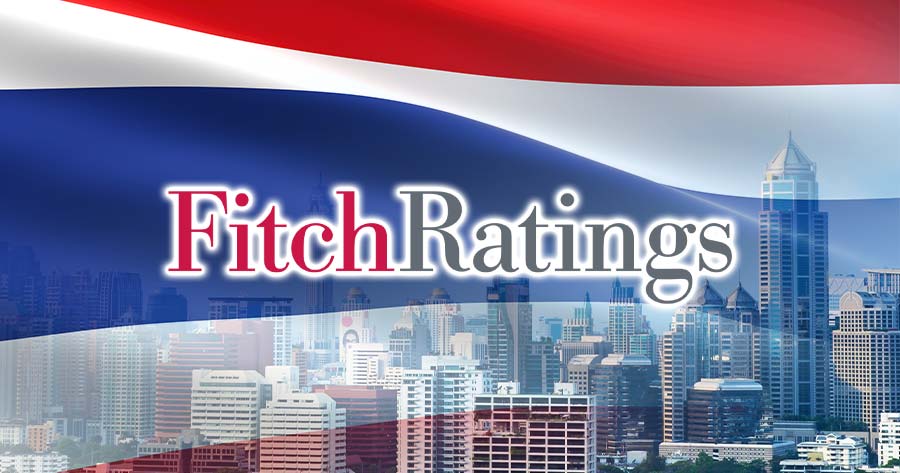Fitch Ratings, a leading global credit assessment agency, has revised Thailand’s credit outlook from “Stable” to “Negative” while maintaining the nation’s credit rating at ‘BBB+’. The move follows a similar outlook downgrade earlier this year by Moody’s, which shifted its stance to Negative while keeping Thailand’s credit rating unchanged at Baa1 at the end of April.
Fitch’s decision is attributed primarily to increasing risks to Thailand’s fiscal stability, persistent political uncertainties impacting policy predictability, investor confidence, and fiscal discipline, as well as mounting fiscal pressures arising from expansive economic stimulus measures amidst subdued economic growth.
Krungsri Securities (KSS) wrote in a note that according to data from past episodes, the short-term effect of such outlook downgrades on the Thai stock market has historically been limited. Notably, following Moody’s negative revision on April 29, the SET Index saw a significant rally, climbing 2.3% the next day and closing at 1,197.26, with a cumulative gain of 4.2% over the following week. The market responded positively, largely buoyed by the Bank of Thailand’s Monetary Policy Committee cutting the policy rate by 25 basis points to 1.75%. Leading sectors during this period included electronics (DELTA), ICT (ADVANC), and power generation (GULF), while financial stocks (TIDLOR, MTC, SAWAD) and hospitality (MINT) lagged.
Historical precedents from December 2008 and April 2020 show similar short-lived pressures on equities after negative outlook changes, with a typical market rebound within a week. Upon comparing past instances, average returns on the SET Index a week after such events stood at approximately 4.3%, rising to 7.8% over two weeks.
KSS views this latest outlook revision as a lagging indicator, suggesting that immediate impacts on the SET Index are likely to be minimal, paralleling the measured market reaction following Moody’s earlier downgrade. KSS expects domestic stimulus measures, ongoing budget disbursement under the new Anutin-led cabinet, and the upcoming seasonal uptick in consumption and tourism ahead of China’s Golden Week to provide short-term support for the market. KSS also highlights potential further easing from the Bank of Thailand, with another 25 basis points cut viewed as providing a 55-point upside to the SET Index. KSS has set support and resistance levels at 1,270 and 1,280/1,295 points, respectively.
Importantly, analysts at KSS note that Thailand has not experienced an actual credit rating downgrade since the Asian financial crisis of 1997.





